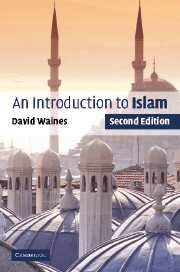Introduction
Published online by Cambridge University Press: 05 October 2014
Summary
Religion is not a thing, but a happening, and it is people who make things happen. From modest origins in Arabia in the seventh century ce, the universal community of Muslims today comprises around 850–900 million persons living in almost every country in the world. Muslims form a majority of the population in more than forty countries and are the second largest community numerically after Christianity. Playing with statistics can highlight some interesting features of the community's composition. In the Maldive Islands, for example, the population is 100 percent Muslim but contributes only 200,000 souls to the global total. In China Muslims are only 1.43 percent of the population but constitute more than 15 million persons. In the republics of the former Soviet Union, Muslims are 17 percent of the total, or 46 million in all. Pakistan came into being as a Muslim state in 1947 with the partition of British India into two independent countries; and, although Muslims today are only 11 percent of the population of the Indian state, they number more than 80 million people. Until Pakistan broke up in 1971, with the eastern wing forming the separate Muslim state of Bangladesh, it was the largest Muslim country in the world. That honor now belongs to Indonesia, whose 80 percent Muslim population numbers 125 million persons. In the Jewish state of Israel, some 12 percent of the population is Muslim.
- Type
- Chapter
- Information
- An Introduction to Islam , pp. 1 - 4Publisher: Cambridge University PressPrint publication year: 2003

